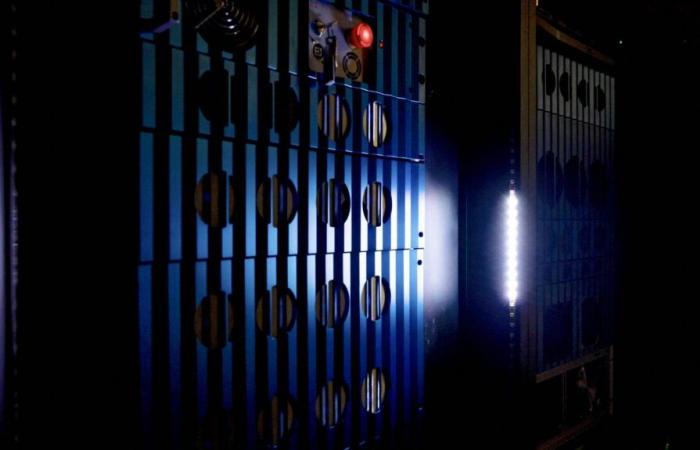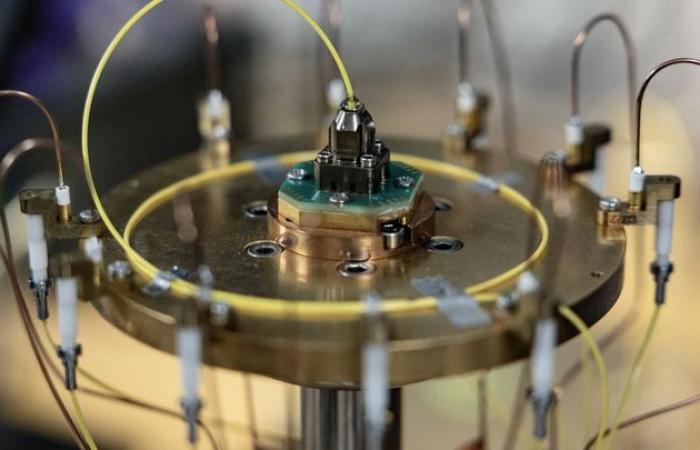This is one of the technological races of the century. Quandela, a young French company, created in 2017, is among the most advanced in the world in the manufacturing of quantum computers. A technology still in its infancy but which will very soon enable the computing power of machines to be multiplied.
In this brand new warehouse located in Massy (Essonne), in a windowless room, is one of the four quantum computers manufactured by Quandela since 2022. This multi-million euro machine is reduced to two cabinets of around 1 .50 m high, very similar to those found in data centers around the world. But inside everything is different. “We do not have at all the same electronic components and circuits as those we find in our traditional computers. Here, we are going to have quantum components”explains Valerian Giesz, co-founder of Quellela.
Quantum means relying on the properties of matter on the scale of the infinitely small. A world where objects behave strangely. A particle can be in several states as long as it has not been measured: this is quantum superposition. And two particles are linked even when separated by a great distance: this is quantum entanglement. To popularize the quantum capabilities of computers, a metaphor often used by scientists is that of the labyrinth.
“With classical computing, to escape the maze, you have to choose between left and right at each intersection, with quantum computing, you can test all solutions at once”
Xavier Pereira, director of development at Quellela
“Quantum computers will really accelerate the resolution of very complex problems that our current computers cannot solve.“, adds Valerian Giesz. Computing capabilities that interest many people. To date, Quandela has already sold two of its photonic computers to private companies, one to OVHcloud and one to a subsidiary of EDF in Quebec.
Sectors that use algorithms, such as finance, artificial intelligence, transportation and the pharmaceutical industry, are monitoring this technology closely. “Today, modeling pharmaceutical molecules would take tens and hundreds of years on our best computersexplains Valerian Giesz. With quantum computers, it will only take a few hours, a few days to have solutions“.

Quandela chose to use the quantum properties of the photon, the grain of light. In an optical room, engineers in coats assemble the component that emits these particles of light one by one. This is the cryostat, a sort of super-refrigerator the size of a crate. Nicolas Marin, director of hardware engineering at Quandela, explains how it works: “We are going to generate photons. And these semiconductor devices require an operating temperature of the order of 2 to 3 degrees above absolute zero, therefore at minus 270°C. And so you see that cryostats are really very small. They only serve to generate photons and detect them.”
In its Massy factory, Quandela plans to build four quantum computers per year starting next year. It also hopes in 2025 to produce its first “logical Qubits”, making it possible to manufacture error-free machines, which no one has managed to do in Europe to date. To achieve this, the company, which has already raised 65 million euros since its creation in 2017, is preparing an upcoming fundraising of several hundred million euros.






